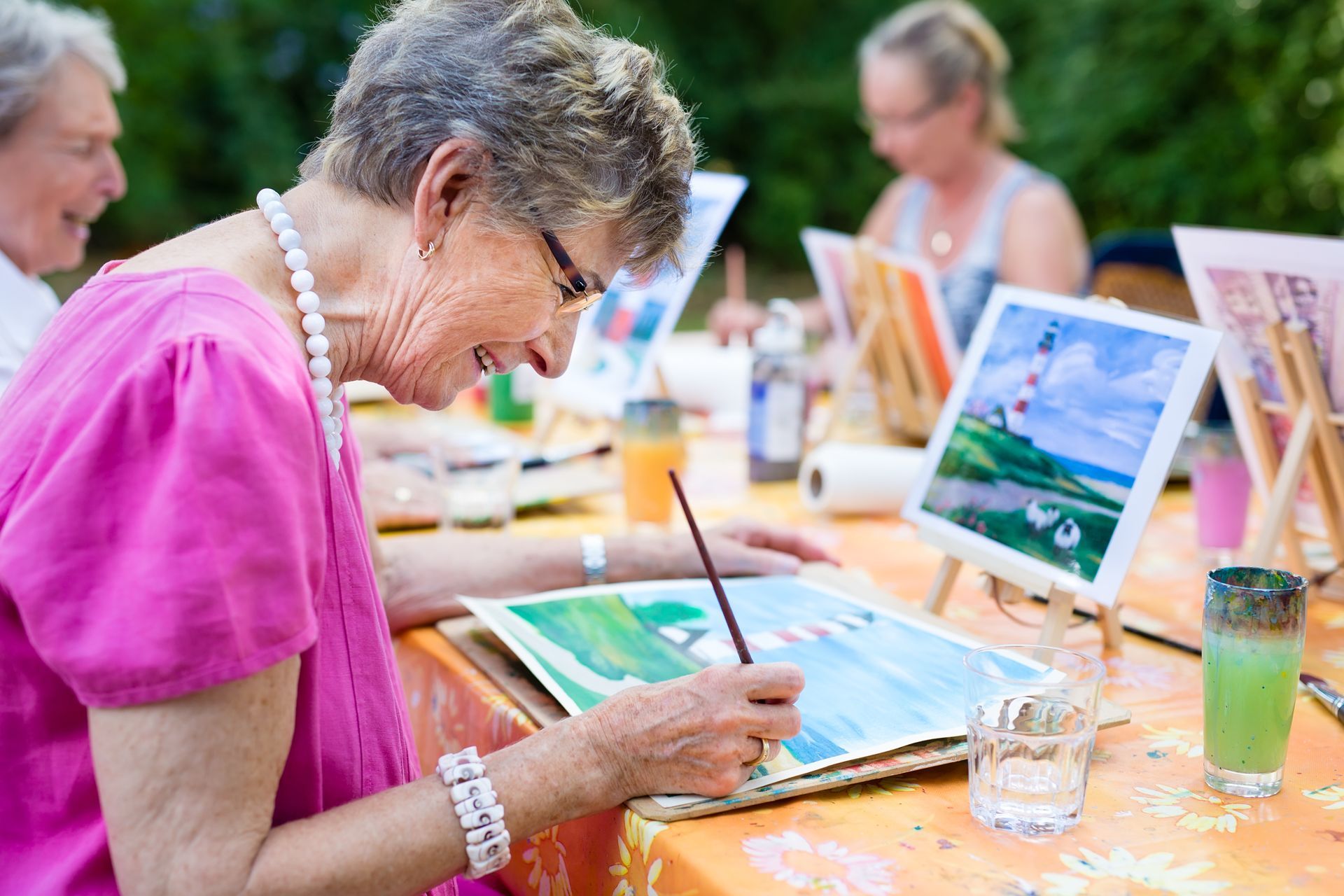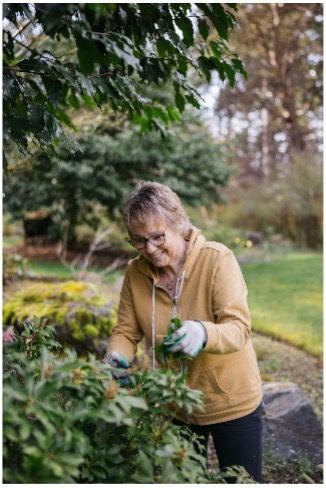Creative Ways to Engage Older Participants


By Madeleine Martin
Senior Behaviour Support Practitioner
(Specialising in Older Participants)
Engaging older participants can involve fun and inviting activities that provide meaningful engagement and improve their quality of life. It's important to understand each individual's abilities and strengths to design programs and activities that are within their physical and mental capabilities. For example, a person with a high risk of falls can participate by staying seated, with the activity adapted to their needs. Another participant with limited mental capacity might benefit from sensory-based activities that offer appropriate and meaningful engagement.
Here are some ideas:

- Gardening – high raised garden beds for those who are unable to get on the ground or are high falls risk. A wheelchair/chair can be placed next to the garden bed to ensure that they can be involved. Benefits include boosts physical health, reduces stress, enhances memory, provides purpose, encourages socialising, and promotes healthy eating in older adults.
- Audiobooks are a great option for older visually impaired people to be involved in “book club”.
- Painting and Colouring provide an excellent opportunity for everyone to be involved including those with dementia and encourages self-expression. You don’t just have to paint canvas’s, try painting rocks and pots for your garden.
- Cooking/Baking is a great activity for those who may be “sensory seeking” and its PICA safe (other than raw eggs). It can provide people with opportunities to make their childhood nostalgic recipes and share them with others.
- Bocce ball is a gentle, social game where players roll balls to get closest to a target. It improves coordination, encourages movement, and promotes social interaction for older adults.
- Toss games – this can include your traditional ring toss or a variation of it like the below “jumbo inflatable pizza toss game”. It helps older adults improve hand-eye coordination, balance, and focus, while promoting gentle movement, social interaction, and a sense of fun and achievement.
Did you know?
HenPower is a creative ageing program was developed in the UK in 2014 has now been adapted in Australia.
The program includes chicken keeping with a structured arts and crafts program. It is designed to improve residents social and emotional wellbeing. The benefits of the resident’s chicken keeping include improved general health and wellbeing, significant reduction of depression, reduction of loneliness and brings benefits of animal therapy into residential care daily.
Pets also offer a great physiological benefit by triggering a release of oxytocin—the “feel-good” hormone that helps reduce stress. For older adults, this stress reduction can improve pain tolerance, making it easier for them to move around and stay active.

Pictured above: Madeleine’s Silkie Bantam chickens.
Learn more about supporting the quality of life for your older participants here
References:
- ABC News. (2016). HenPower Promotes Well-being in Aged Care Facility. Available at: https://www.abc.net.au/news/2016-01-08/henpower-promotes-well-being-in-aged-care-facility/7077092
- HenPower: Promoting Well-being in Aged Care. YouTube. Available at: https://www.youtube.com/watch?v=mqWl2LfOM6o
- Whiddon. (2019). HenPower Program Flyer. Available at: https://www.whiddon.com.au/wp-content/uploads/2019/01/181029-Whiddon-Programs-HenPower-DL-Flyer.pdf
- Whiddon. HenPower. Available at: https://www.whiddon.com.au/creative-ageing/henpower/#:~:text=HenPower%20is%20a%20creative%20ageing,HenPower%20trial%20in%20nursing%20homes
News & Insights
Check Our Latest Resources







